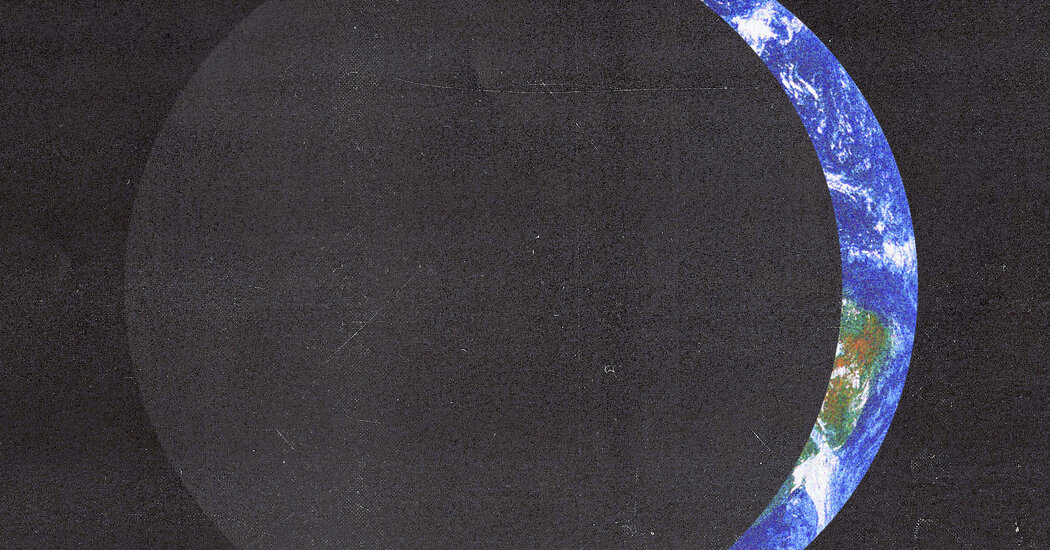On Tuesday, after picking up strength in an abnormally warm ocean, Hurricane Melissa tore through Jamaica, wreaking havoc and eventually claiming at least 50 lives across the Caribbean. Hours before Melissa, a Category 5 hurricane, made landfall, Bill Gates, the billionaire philanthropist, released an audacious memo arguing that climate change “will not lead to humanity’s demise.”
For almost two decades, many environmentalists have argued that the burning of fossil fuels poses an existential threat to all of human civilization. As a result, much of the conversation about global warming has become steeped in the language of extinction and planetary catastrophe.
But these dark visions ignore a simple fact: Climate change is not a giant meteor crashing into Earth. We will not all suffer equally.
Those whose lives are threatened by climate disaster are not merely the victims of bad luck. When heat waves strike, the dead are predominantly people who are unhoused, older or living alone in substandard housing. Around the world, the neighborhoods that repeatedly flood are disproportionately home to poor families who lack the means to evacuate, fortify their homes against worsening storms or permanently move out of harm’s way.
With over $100 billion to his name, Mr. Gates is arguably one of the least appropriate people to police language on the climate crisis, given that he won’t shoulder the worst consequences. His memo also glossed over the possibility of runaway warming within our lifetimes and the destruction of nature.
Yet he is generally correct when he writes, “Climate change is a serious problem, but it will not be the end of civilization.”
When pundits, journalists and scientists talk about the climate crisis as the dawn of a new era in history, they plaster over the long-simmering injustices that create climate vulnerability in the first place: poverty, oppression, conflict and colonization. Whether in New Orleans’ Lower Ninth Ward or in Bangladesh, climate change threatens to destroy the lives of the same people whose families have already endured generations of hardship.
In the United States and around the world, the affluent typically can afford to flee a disaster and rebuild a damaged home. A stable income and financial savings can make the difference between a tragedy that upends a year and a tragedy that upends a life.
Compassion and outrage are appropriate responses in the face of this injustice. But when those of us who are relatively climate-safe indulge in visions of planetary apocalypse, we can lose sight of our own complicity and become mired in feelings of victimhood. I know an affluent couple in Connecticut whose house kept flooding during rainstorms, so they moved to the hills. “I guess you could say we’re climate refugees,” the husband told me while we dined outdoors one summer evening.
This is where the doomsday narrative goes from simply wrong to unhelpful. In a 2024 study of nearly 16,000 young Americans’ attitudes toward climate change, roughly six in 10 participants agreed with the statements “Humanity is doomed” and “I question whether the work I put into my career, job or vocation will matter.” A majority of the same participants also conceded, “I’m hesitant to have children.”
It appears that the story of climate doom has licensed a toxic fatalism across part of an entire generation. Tellingly, some peer-reviewed studies by environmental psychologists have found that people reporting high levels of climate anxiety are not necessarily more likely to undertake environmentally motivated actions, such as eating less red meat.
It’s also essential to consider the perspective of some of the most climate-vulnerable communities in the nation, such as the remote Alaska Native villages where I conduct research. In some instances, entire towns in Alaska will have to relocate to higher ground or risk the sort of devastation that struck two Yup’ik villages in the southwest corner of the state just last month. The Indigenous leaders in these communities have no use for victim narratives — theirs or anyone else’s — yet their future depends in part on American voters and taxpayers acting to make sure the villages have the resources they need to survive the climate crisis and remain whole.
When the more climate safe among us refuse to identify as victims, we can still grieve for our communities and the places we love that are suffering irreparable harm. Although climate change poses relatively little threat to my neighborhood in Berkeley, Calif., I feel an ache in my chest when I visit my hometown, Portland, Ore., in the summer and see Mount Hood on the horizon. Its glaciers are becoming mere echoes of the places where, as an aspiring teenage mountaineer, I first learned to use an ice ax and crampons.
The challenge before many of us is to channel our fear and grief about the climate crisis into choices that safeguard the future: how we provide aid to the most vulnerable, and how we heat and cool our homes, travel, eat and, above all, vote. We commit a grave error when we indulge the fantasy of universal vulnerability — that the world is becoming generally inhospitable to human life. For while we all live on one planet, there are many worlds separating the real victims of climate change from the bystanders.
Stephen Lezak is a researcher at the University of Oxford and the University of California, Berkeley, who studies the politics of climate change.
The Times is committed to publishing a diversity of letters to the editor. We’d like to hear what you think about this or any of our articles. Here are some tips. And here’s our email: [email protected].
Follow the New York Times Opinion section on Facebook, Instagram, TikTok, Bluesky, WhatsApp and Threads.
The post Bill Gates Has a Point appeared first on New York Times.




